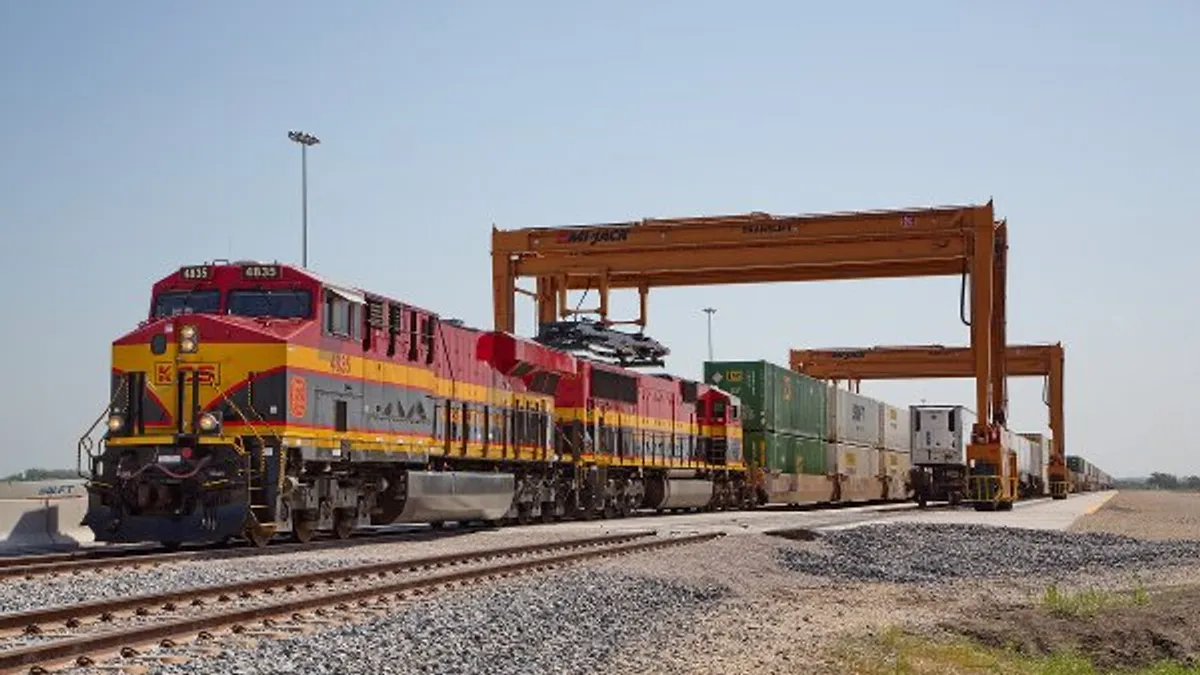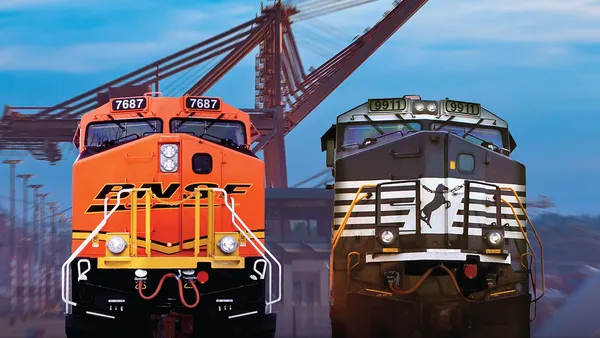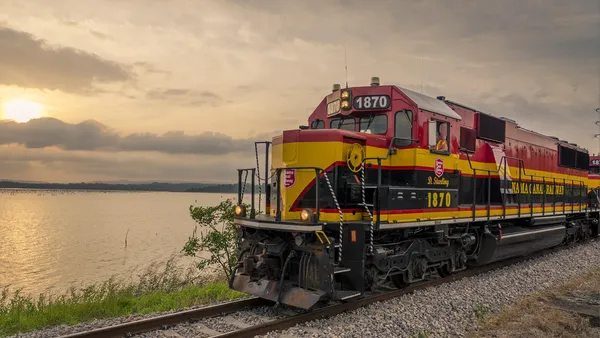Dive Brief:
- Kansas City Southern (KCS) has redefined two performance metrics to give a better idea of how well the railroad is serving customers, according to a press release.
- Instead of train speed, the railroad will track gross velocity defined as "average velocity of a train between its origin and destination stations, calculated as the sum of the miles traveled divided by the sum of total transit hours."
- Instead of cars online, the railroad will track operational cars online defined as: "the number of cars on the KCS network that are not at a customer’s location."
Dive Insight:
As railroads transition to the principles of precision-scheduled railroading (PSR), the metrics they choose to report demonstrate their priorities and guide their service changes. In fact, PSR has sometimes been described as a strategy guided by operating ratio (OR) — a figure that describes operational efficiency — and little else.
OR may be the guiding star for railroad investors, but it doesn't mean nearly as much to railroad customers. The number one complaint from rail industry stakeholders regarding PSR is customers get the short end of the stick.
Railroads claim PSR enhances reliability, and higher trip plan compliance benefits shippers. But especially in the early stages of transition, existing examples are not encouraging. Network rationalizations often lead to fewer options for shippers, including cutting origins and destinations. Railroads adopting PSR principles without complete visibility into all of the freight and their position have also historically left shippers waiting for days after their delivery windows expired.
Union Pacific said earlier this year conversations with customers "haven't been easy" amid the railroad's PSR transition. CSX even issued a public apology to shippers in January for service changes and disruptions caused by the railroad's transition.
Railroads picking up PSR more recently have demonstrated awareness of the concept's negative reputation among customers and adjusted the PSR playbooks. Union Pacific, despite some customer jostling, has garnered skepticism from analysts that its three-stage PSR implementation plan may be too gradual.
Likewise, Kansas City Southern has kept customers at the center of its PSR discussions, though the railroad just began transition work in January. Both of the changes in metrics from KCS represent small tweaks that frame the elements of speed and dwell from the customer's point of view.
"These revised metrics will give stakeholders a more accurate understanding of KCS’ operational performance as we strive to improve customer service," Kansas City Southern’s Executive Vice President of Precision Scheduled Railroading Sameh Fahmy said in a statement.














